An Interview with MIC's own "Woman in Jazz"
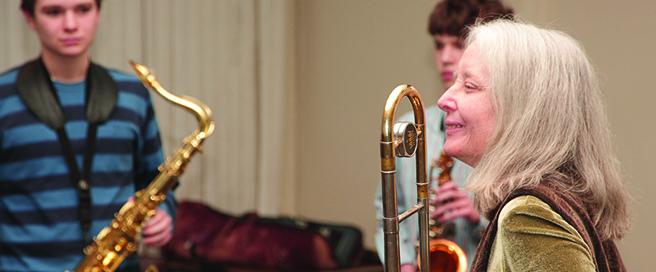
November 4th, 2015
When did you start playing trombone and how did you decide to pick this instrument? It’s not an instrument that most young women choose. 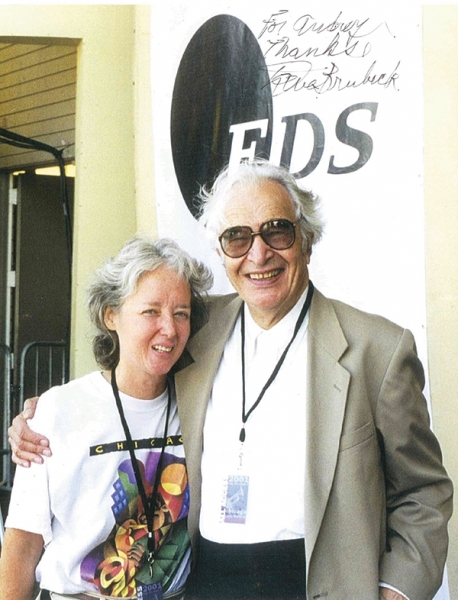
I chose the trombone when I was in third grade and started playing in fourth grade at Central Elementary School in Mamaroneck, NY. I had heard the trombone played on recordings and loved it's deep, rich tone. Also, I was intrigued by how it was so different from the other instruments, with using the slide to change pitch.
When I told the band director that I wanted to play the trombone there was a long silence. Then he said " Audrey, girls don't usually play the trombone ." I was puzzled. It never occurred to me that not many young women played it, I just knew I wanted to! We agreed that we would "try it." I met up with my band director again many years later. He said, "Please don't tell anyone I said that. It was kind of like giving Babe Ruth his first bat!"
When did you become interested in jazz and what kind of jazz did you first start listening to?
In junior high and high school I wore out the grooves on my JJ Johnson albums, I listened to them so much! JJ is considered one of the first bebop trombonists. I listened to him with his small group, with big band and in conjunction with Kai Winding. Also, there was a group called "Brass Impact" (big band) led by Chicagoan Warren Kime that I loved. It was great to meet up with Warren when I moved to Chicago in 1976.
When I studied at the Eastman School, I played in the Jazz Band for only one year (directed by Chuck Mangione). I decided I wanted to focus completely on classical music and win a job in a symphony orchestra. I joined the National Arts Centre Orchestra in Ottawa, Canada even before I graduated. It didn't take long to realize that I missed playing jazz. From that point on, I have played and taught in both styles equally as I still do today. 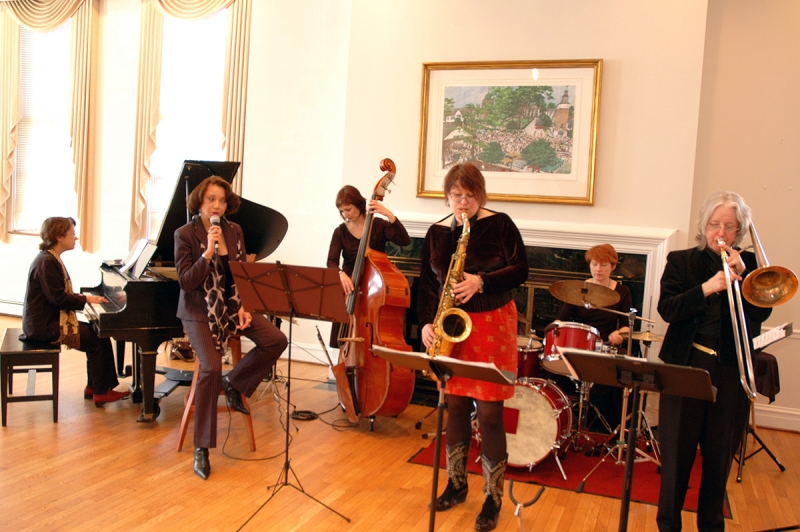 Do you find it discouraging that there aren’t more women in the jazz field (especially instrumental) or do you regard it as a challenge?
Do you find it discouraging that there aren’t more women in the jazz field (especially instrumental) or do you regard it as a challenge?
I'm a pretty self-motivated and determined person and I would not let the small number of women instrumentalists discourage me. Instead, I have always put all my focus and energy into becoming the best musician I can be, and let that speak for itself. When you are committed to that end, the musicians around you sense that and gender often becomes much less of an issue.
Did you have a jazz role model and, if so, what did you particularly admire about that person?
I wish that I had known about the many great female jazz instrumentalists that came before. I became aware of Melba Liston, Clora Bryant, Jane Sager, Vi Burnside, the International Sweethearts of Rhythm and others much later, when I was an adult. Luckily, I was able to meet Melba, Clora and Jane when they were honored at the Women's Brass Conference in 1993. There are two wonderful documentary films about women jazz instrumentalists. "Lady Be Good" was shown as part of our MIC Jazz Festival. One early role model ( early high school ) was a young trombone player about my age who played on " The Bill Cosby Show." Her name is Janice Robinson. I was very excited to hear her and see her in such a high profile show. I wrote her a fan letter, she wrote me back and we became "pen pals." We both ended up at Eastman for college and are still in contact to this day!
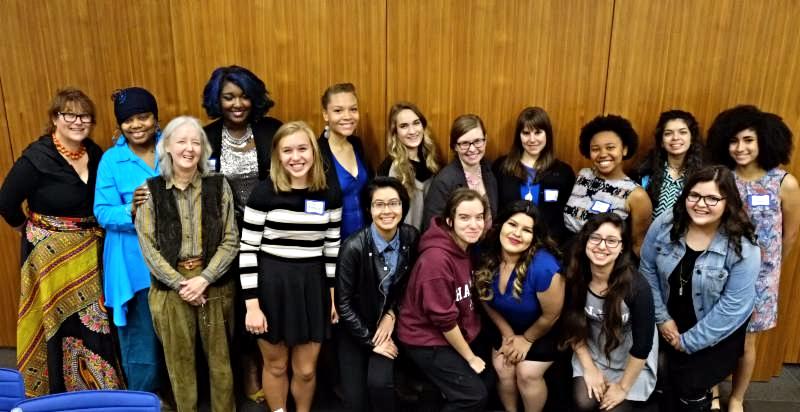
So often in music, especially popular music, and jazz too, part of being a recognized women musician has as much to do with how you look as how you play. What advice do you have for young women trying to make it in jazz based on how they play and not how they look?
Put all your focus and energy into becoming the best musician you can be, and let that speak for itself. Dress and carry yourself in a way that is an expression of who YOU are, that communicates that you are comfortable and confident in yourself. The musicians around you will sense that. There will always be some who will never accept you. Do not let them pull you down. Instead, seek out and surround yourself as much as possible with the musicians who support you and even admire you!
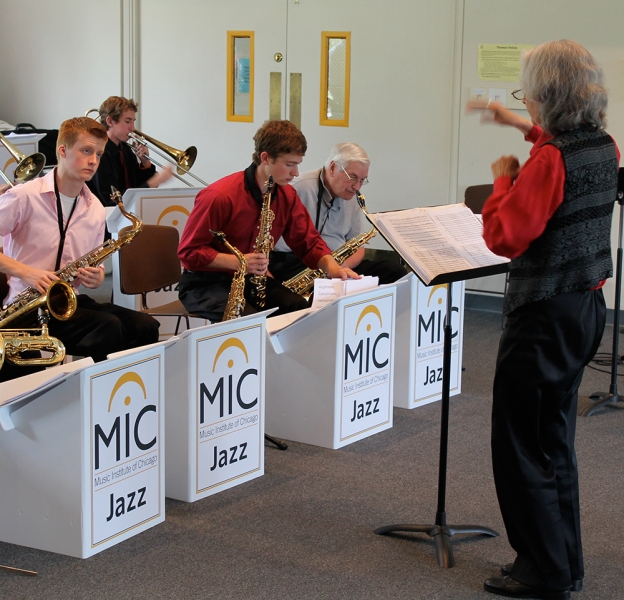 What changes have you seen regarding the role of women in jazz over the course of your career thus far?
What changes have you seen regarding the role of women in jazz over the course of your career thus far?
I see more female jazz players in high school and college jazz bands than ever before. A relatively small number of them continue to become professionals, but those who do are very accomplished and determined young players. The level of jazz education has gone up alot in recent years, so the training has been improved for those pursuing this path. There are now support groups like the Jazz Institute of Chicago's " Women's Leadership Initiative" where established women jazz musicians mentor younger women musicians. The importance of role models is more understood than ever before, women musicians are being included in and honored at more Jazz Festivals than ever before, and there are more women musicians on college jazz department faculties and in summer jazz program faculties than ever before. While there are still some who cannot totally accept women players as equals, I see their numbers falling. Many more musicians appreciate and want to help female players. And then there are those for which gender is a non-issue. It's all about how you play and your commitment to music. I see this more and more often and it makes me very happy. After all, isn't this really where we want to be?
For more about Audrey Morrison, click here >>
Learn more about the Music Institute of Chicago Jazz Studies program >>
